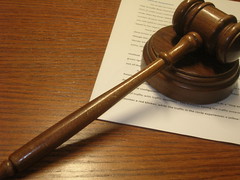 |
- When students are assigned to post information to public social media platforms outside of the school LMS, they should be informed that their material may be viewed by others.
- Students should not be required to release personal information on a public site.
- Instructor comments or grades on student material should not be made public.
- While not clearly required by law, students under the age of 18 should get their parent’s consent to post public work.
Regarding copyright laws and online
learning, the method that will more likely ensure that copyright is
not being violated is to avoid copying any content from the Internet.
Most works on the Internet are copyrighted, even if there is no
explicit indication. This doesn't mean that copyright requires that
all work, images, words, and graphics must be original. Fair use
laws allow us to use portions of copyrighted materials as long as we
respect the legal boundaries of such fair use.
References
Orlando, J. (2011) FERPA and Social
Media. Retrieved March 10, 2015, from
http://www.facultyfocus.com/articles/teaching-with-technology-articles/ferpa-and-social-media/#sthash.FiahAz4B.dpuf
No comments:
Post a Comment